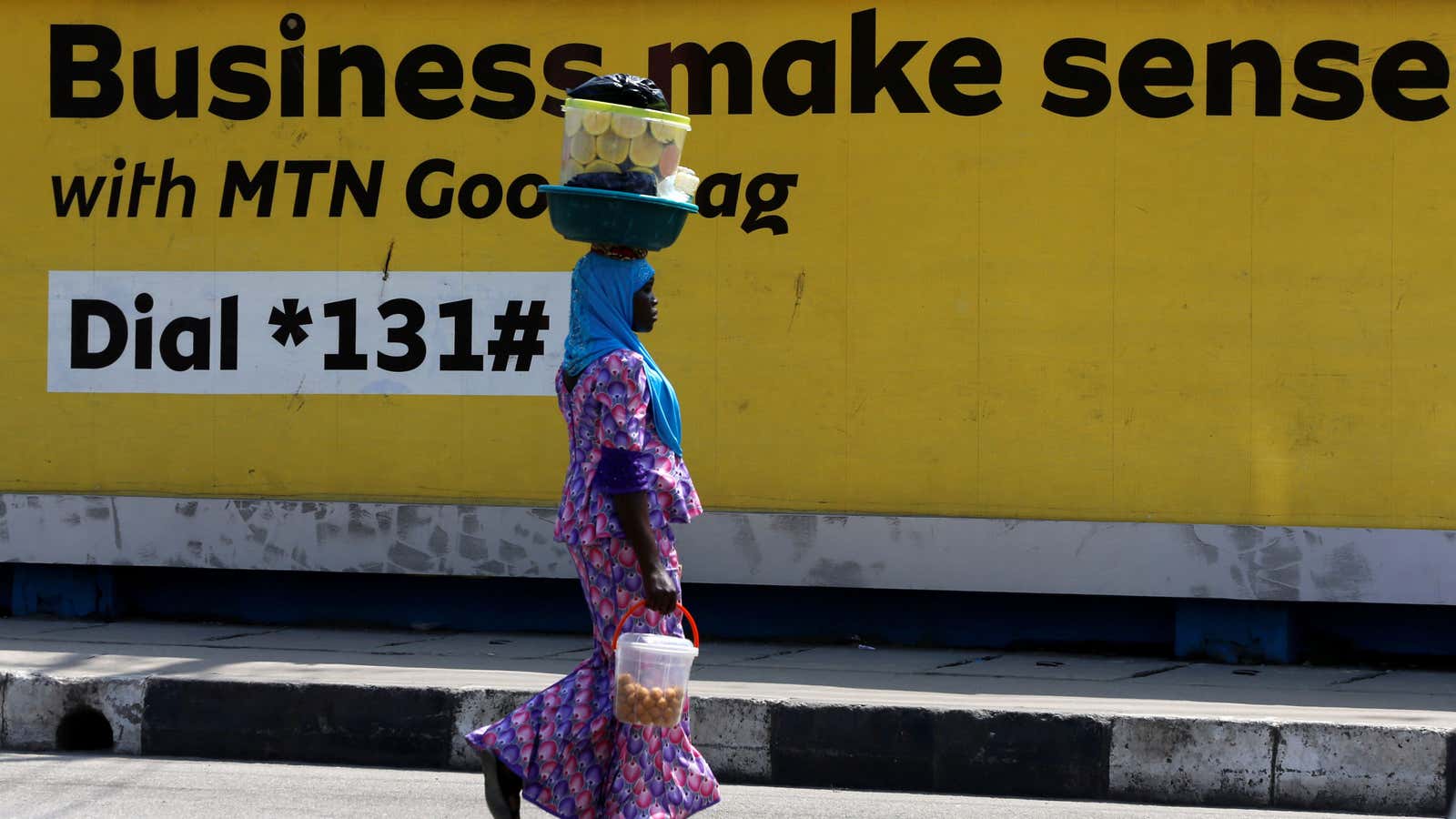Three years after it was first mooted as part of the $1.6 billion settlement in a sim card authentication dispute with the Nigerian government, the listing of Africa’s largest telecoms company on the Nigerian Stock Exchange is finally complete.
Following a “listing by introduction”, MTN Nigeria, which trades with “MTNN” as its ticker, has listed 20 billion ordinary shares at $0.25 each. Unlike with an initial public offering (IPO), MTN Nigeria will not raise new funding as it has only listed already existing shares.
The choice for a listing by introduction rather than an IPO, like in Ghana, is linked to MTN’s long-running billion-dollar regulatory disputes in Nigeria. Revising its initial plans for an IPO, the company claimed it would be “challenging to get a fair valuation” amid ongoing disputes with authorities, including allegations that it owes $2 billion in taxes.
But IPO or not, MTN Nigeria’s listing is a timely boon for the local stock market which has seen a steady decline in its all share index over the past year. “We need more listings like this [because] the Nigerian market isn’t deep enough,” says Onome Akpifo, a Lagos-based stock market analyst. The stock market is yet to fully recover from a major crash in 2008 which fueled a lack of trust among investors.
Already, MTN Nigeria’s $5 billion listing makes its the second largest company on the Nigeria’s stock exchange, right behind only the $8.3 billion market cap of Dangote Cement, owned by Aliko Dangote, Africa’s richest man. The listing also comes on the heels of the MTN’s recent positive financial results in Nigeria, its largest market.
“What this [the listing] does is to open the market up to the general public, giving them a piece of the pie,” says Tunji Andrews, a Lagos-based economist. In reality, Andrews acknowledges it’s unlikely there’s enough of that pie to go round given significant interest from institutional investors who either already own shares or will buy to hold. “Especially because no new shares are being issued, it means that it will turn into a scramble for whatever is available, from people who would like to sell—if any,” Andrews tells Quartz.
This proved correct a few hours later. As Nigerian markets closed 2.30 pm local time, MTN Nigeria’s stock was traded for just 16 minutes yet it was enough time to capture demand as it surged 10%, valuing the company at $5.6 billion. That surge also reversed the stock market’s trend of eight consecutive days of losses.
While the listing fulfills a government condition, it could also serve to temper unfavorable public sentiment which largely sees the South Africa-owned telecoms giant discussed as a foreign company which extracts profits. That sentiment of exclusion from the company’s success holds strong despite MTN’s impact on the local economy through jobs and taxes as well as its vast spend on telecommunications infrastructure which see it dominate the Nigerian market. Those views were further fostered by claims last year by the Nigerian government that MTN illegally repatriated $8.1 billion in profits. (The dispute was settled for $53 million in December).
Sign up to the Quartz Africa Weekly Brief here for news and analysis on African business, tech and innovation in your inbox
